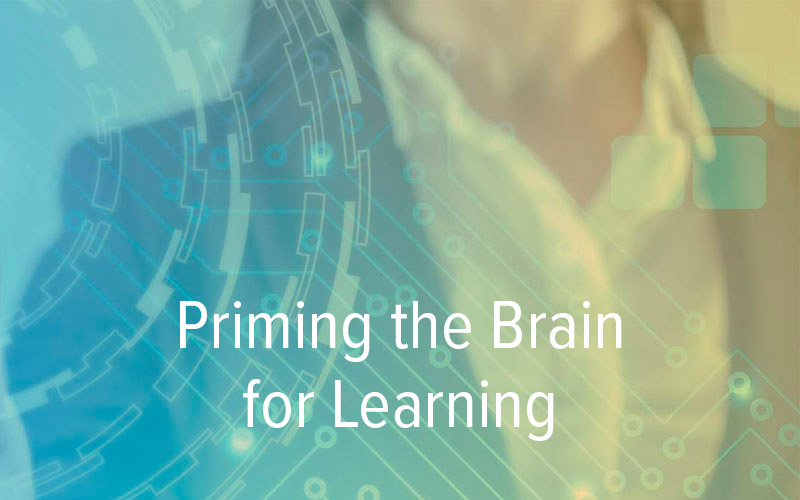
In 2010, psychologists discovered that self-testing using multiple-choice prior to studying, primes the mind for learning and retention. Pre-testing prompts the brain to form an early outline that will be filled in with details as learning progresses.
As shown below, the power of priming has been demonstrated:

The effect of priming through pre-testing on recall.
Using a learning platform that incorporates the Socratic method of asking questions prior to learning results in strong memory recall. However, many people still have concerns about this learning technique:
- What if the incorrect alternatives on a multiple-choice test are remembered more clearly than the correct information?
- How does pre-testing with multiple choice compare to additional study?
- Research reveals that the brain suppresses old information with the learning of new, related information. So, does testing before studying suppress related information that is not on the test?
In three elegantly crafted experiments Robert Bjork and Jeri Little discovered the following:
Pre-testing is a Better Use of Time – Testing before study is a far better use of time than extending the time of study. Even though a majority of answers will be wrong on a pretest, it is beneficial when it comes to later study. This can be seen in the previous graphic with pre-testing as the first green bar and extended study time as the orange bar.
Pre-testing is Better Than Memorizing – Testing before study is better than memorizing facts before study. Compare the two green bars.
Pre-testing Creates Memory Trace – Multiple-choice pretests improve not only the learning of information on the pretest, but also related information that was not on the pretest (see the two blue bars). It is likely that this stems from the fact that learners must analyze the alternatives with great care to decide on the correct answer. Even though they have no previous knowledge, they still search their memory for any related clues and associations that might give them an edge in determining which of the alternatives is correct. This process leaves them with a memory trace of related information that they will be exposed to again during future study.
“Even when a multiple-choice pretest takes time away from study, it appears to make subsequent study more effective than other activities that pre-expose students to the information.” — Little & Bjork, UCLA
Pre-testing Does Not Increase Misinformation – This was a concern because it was thought that incorrect alternatives on a multiple-choice test might be mistaken for correct information and later remembered as such. Bjork and Little discovered that this fear can be laid to rest. Pre-testing does not lead to misinformation.
A New Kind of Learning Platform
Amplifire’s learning platform primes the mind through self-testing. It begins with learners assessing their current knowledge, even though they may never have studied the material. Furthermore, the platform gives learners the ability to answer with low confidence or honest ignorance—something no other platform offers. The judgements of learning generated by such introspection lead to greater contemplation of the material, focused attention, and associations in the brain’s hierarchy of existing knowledge—key elements for rapid learning and long-term retention.







